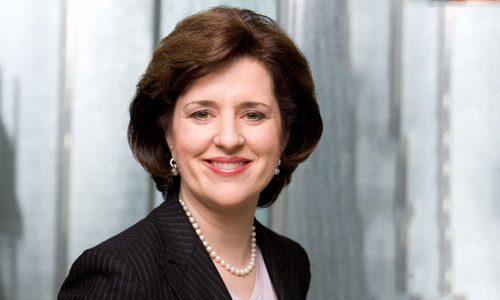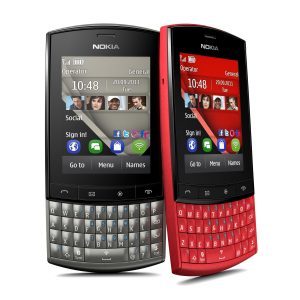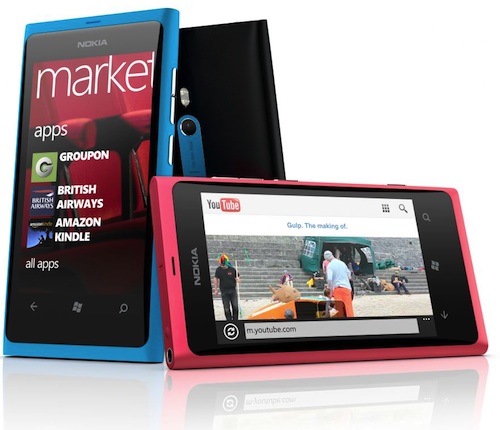
Nokia won’t be introducing a tablet until it has one that is good enough, if at all, and it won’t get devices running Windows Phone into the hands of the lower end of the mobile handset market until the price of hardware falls further.
It will, however, continue to support MeeGo and Symbian devices, Mary McDowell, the company’s vice-president for mobile phones said in an interview with TechCentral at the annual Nokia World conference in London on Wednesday.
McDowell says Nokia will provide ongoing support for MeeGo, but the N9, released in recent weeks to good reviews, “will be a one of a kind device”. Future Nokia smartphones will all run the Windows Phone, she adds.
She says the company has leveraged the industrial design of the N9 for its Windows Phone-powered Lumia 800, unveiled by Nokia CEO Stephen Elop on Wednesday, and consumers can expect some of the user experience elements of the N9 to appear in future devices.
Part of the N9’s future usefulness will no doubt come from development tool Qt, which is a cross-platform application and user interface framework, meaning MeeGo users can expect to see future functionality even though there won’t be any future MeeGo devices from Nokia.
McDowell says Qt will also form part of the company’s “next billion strategy” — its plan to provide data-capable “feature phones” (in other words, non-smartphones) at reasonable prices for emerging markets.
Despite Nokia announcing a reasonably priced smartphone in the form of the Lumia 710 at Nokia World, McDowell says Windows Phone “is not part of next billion plan”. She says the greatest challenge in reducing the cost of smartphones is in the hardware, but Nokia “wants to try bring [smartphones] to lower price points in time”.

She says Nokia has positioned the new Asha 303 as the top end of its mobile phone range targeting the next billion. It’s important to provide devices with wide-ranging functionality while keeping them beneath E100, she adds.
“Most of the growth in the sub-E100 price band comes from Brics countries and similar,” says McDowell. The Brics are Brazil, Russia, India, China and SA. This category includes handsets “that are data capable as well as more basic phones”.
McDowell says Nokia expects to continue producing Symbian-based devices for at least the next five years because in “some markets it keeps doing well, so we will keep refreshing the product line”.
Nokia hasn’t confirmed whether or not it will offer Windows Phone devices in all the markets in which it operates, but McDowell says some markets, like India, can expect them in addition to the Asha range so that the company can cater to both the “rich and poor ends of the market”. The Windows Phone-powered Lumia 800 and Lumia 710 are expected to go on sale in SA in the first quarter of next year.
Asked how Nokia intends to differentiate is Windows Phone products from those rival manufacturers are producing, McDowell says the company’s strategy is to make market for Microsoft-based phones bigger, to “make the cake big, and then we want a big slice of that cake”.
“In terms of the ecosystem and the developers, our efforts will be good for all manufacturers, but our products will be differentiated by their industrial design, content deals, our music service and other services we will be introducing.”
McDowell won’t be drawn on what these “other services” will constitute, but Nokia’s location and commerce division will be announcing some of them “soon”.
For much of its history, Nokia has had a large range of devices in its portfolio, ranging from entry-level models to smartphones, far more models than most of its competitors. Is the fact that Nokia only announced six handsets on Wednesday indicative that it might be looking to change this approach?
“Reducing the number of devices in the portfolio is a deliberate decision to shift the focus to more volume per unit,” says McDowell. She says also that the company thinks it is important to have a strong but more limited range of devices for the lower end of the market.

Some analysts have suggested that abandoning MeeGo for Windows Phone, which has yet to gain any real traction in a market dominated by Android and Apple devices, could be a case of Nokia leaping from one “burning platform” to another. Elop used the “burning platform” metaphor earlier this year to sell Nokia staff on the need to switch to the Microsoft platform.
“Our focus is on making a great device,” says McDowell in response to the critics. She suggests the problem other manufacturers’ have had with Windows Phone devices is they haven’t successfully leveraged what the platform has to offer.
“Our user interface and personalisation are superior to other Windows Phone implementations. We think the prospects for success are good.”
Considering Nokia has always had its own operating systems, an obvious question is why the company has given that up to Microsoft, particularly as it is not the only manufacturer using Windows Phone.
“We will be only one of the [Windows Phone] vendors, but we expect to be at the top,” says McDowell. Nokia has had “lots of discussion with Redmond [Microsoft US head office] and we’re working towards deeper R&D collaboration”.
Microsoft has sometimes been accused of bullying its partners, but McDowell suggests that, if anything, the collaboration between the two companies is only likely to make Nokia work harder. “Microsoft is a smart, aggressive company, and we need to be just as smart and just as aggressive. We see a huge opportunity in that.”
She downplays suggestions that Nokia will have special influence with Microsoft. “We would like to influence the Windows Phone roadmap at Microsoft but it isn’t as if there’ll be any special [software development kit] for our developers or any other special treatment. When we recruit good developers, it’s good for everyone else too.”
A notable omission from Wednesday’s keynote by Elop was any talk about tablet computers, a market Nokia must surely be keen on. “We announced everything that was ready to be announced today,” McDowell says. “There are clearly synergies between phones and tablets, as demonstrated by Apple — which has had enormous success with its iPad — but as Apple has demonstrated, you best have something phenomenal if you’re going to jump in.” — Craig Wilson, TechCentral
See also: Elop heralds ‘new dawn’ for Nokia with Lumia phones and Nokia unveils augmented reality tools
- Subscribe to our free daily newsletter
- Follow us on Twitter or on Facebook
- Visit our sister website, SportsCentral (still in beta)




